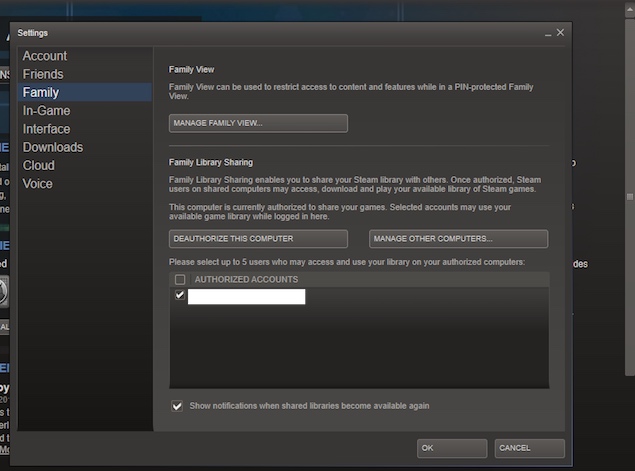It’s anything but a disputable comment that gaming is a costly side interest. Indeed, even with the profound limits we regularly find in Steam deals, PC games can in any case cost huge amount of cash after some time. One method for facilitating the weight of purchasing new games is by offering your Steam library to others through an element called Steam Family Sharing. This is the way to set up Steam Family Sharing alongside certain impediments you ought to know about before you begin sharing your Steam library.
How to set up Steam Family Sharing
Above all else, despite the fact that the setting is called Steam Family Sharing, you’re not restricted to just imparting your Steam library to relatives. The element is intended to be utilized on shared machines, however there’s no check cycle to demonstrate that you’re really identified with individuals you’re offering your games to. Maybe that is something conspicuous to call attention to, yet we sorted it’d be great to move that first thing.
Kicking off Steam Family Sharing is adequately straightforward, above all, Valve necessitates that you turn on Steam Guard before you can begin sharing your Library. You can do that by opening the Steam customer, choosing “Steam” in the upper-left corner, then, at that point “Settings,” lastly “Record.” On that board, you’ll have the option to set up Steam Guard, which utilizes the Steam portable application to give confirmation codes when you endeavor to sign in from an unnoticed gadget.
What are the restrictions of Steam Family Sharing?
Obviously, you’re not giving companions limitless admittance to your library without any surprises. Valve’s FAQ on Steam Family Sharing lets us know a portion of the limits of this element, and they’re clearly weighted on the individual who really possesses the library being referred to.
At the point when you choose to impart your Steam library to companions, you’re selecting to share your whole library less any games that don’t take part in the program. There are no singling out explicit games here – when you add a machine and its clients to your Steam Family Sharing arrangement, those clients will get close enough to your games as a whole.
While many games on Steam are qualified for Family Sharing, some of them aren’t. Valve says that games which “require an extra outsider key, record, or membership to play can’t be divided among accounts,” so you’ll need to discover another method for persuading your companions to check Final Fantasy XIV Online out.
Clients with whom you share your library should be online to play your games. Libraries must be utilized by each individual in turn, and the record holder consistently approaches their games. This implies that assuming a supported clients is playing one of your games by means of Family Sharing and you start playing a game, that client will be kicked. As indicated by Valve, they’ll be allowed a couple of moments to buy the game and proceed or save their advance and quit.
At last – and this is vital – you should just impart your library to clients who won’t cheat or lead misrepresentation while playing. Assuming somebody cheats in a game ensured by Valve Anti-Cheat (VAC) while playing your library, Valve says that your “Family Library Sharing advantages might be repudiated and your record may likewise be VAC restricted,” clarifying that you should just impart your library to dependable people.

